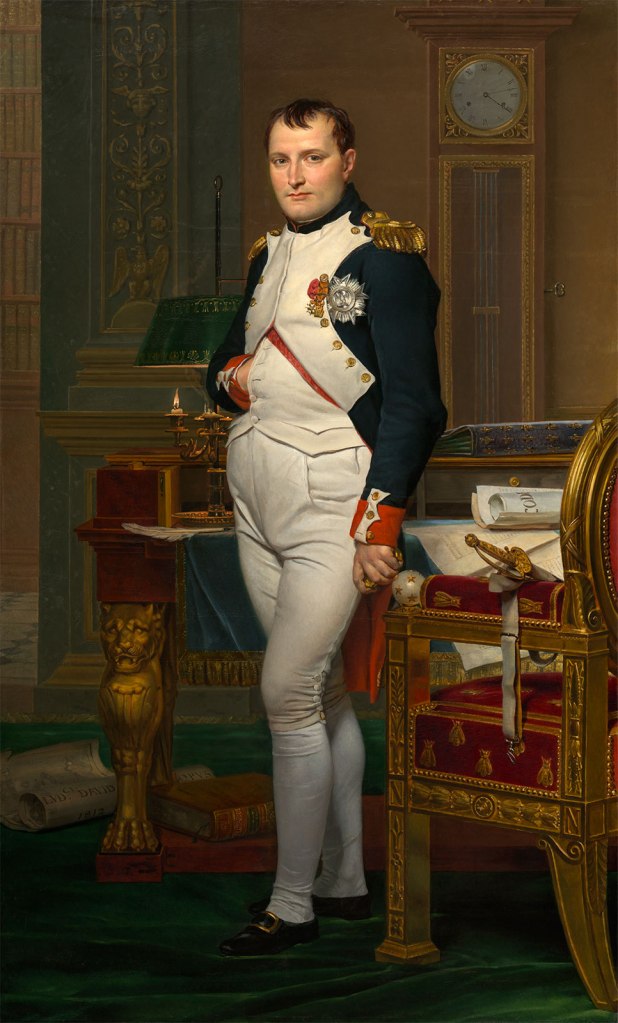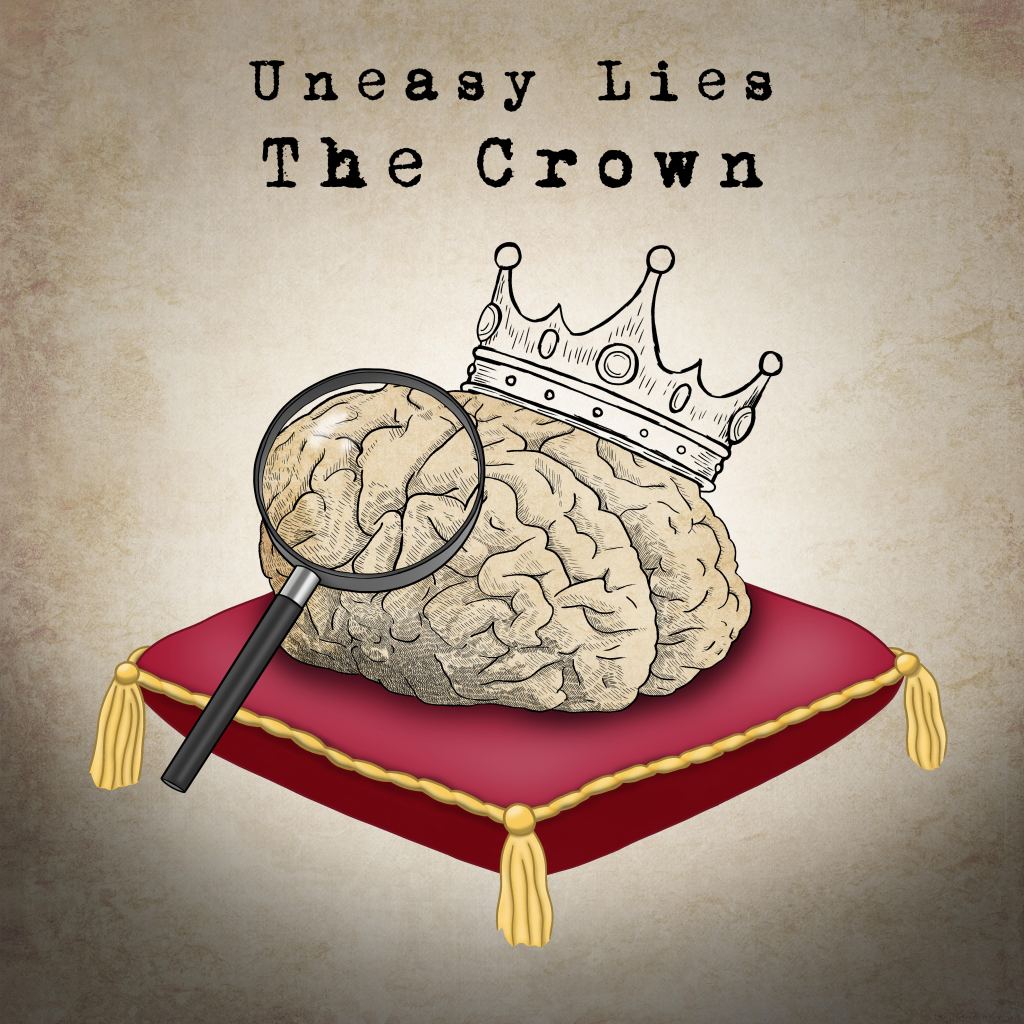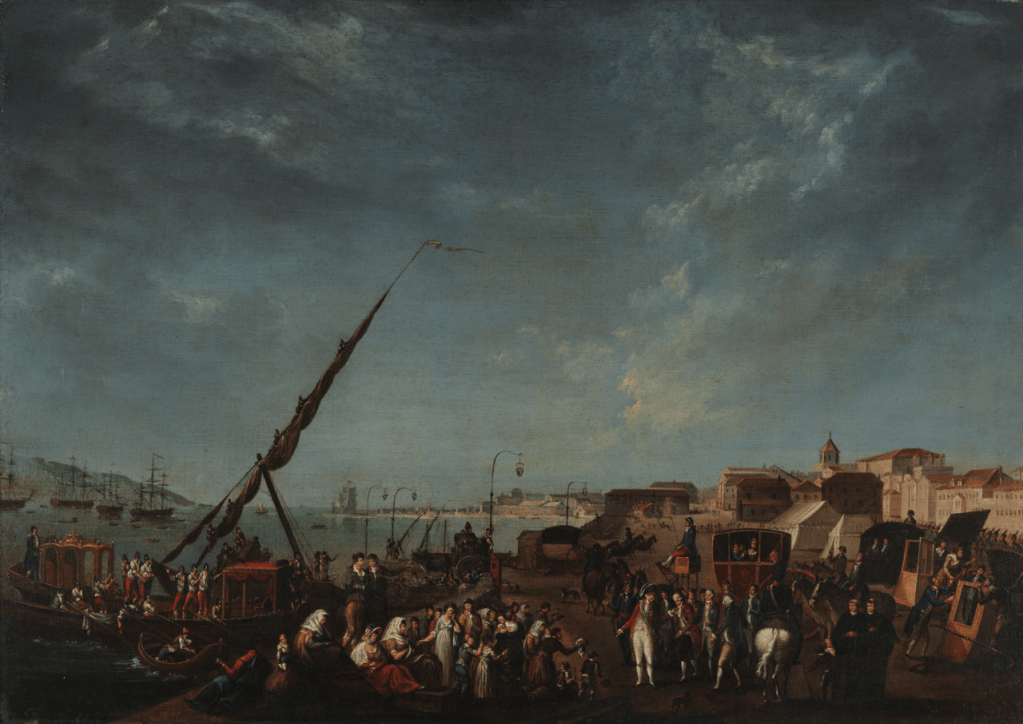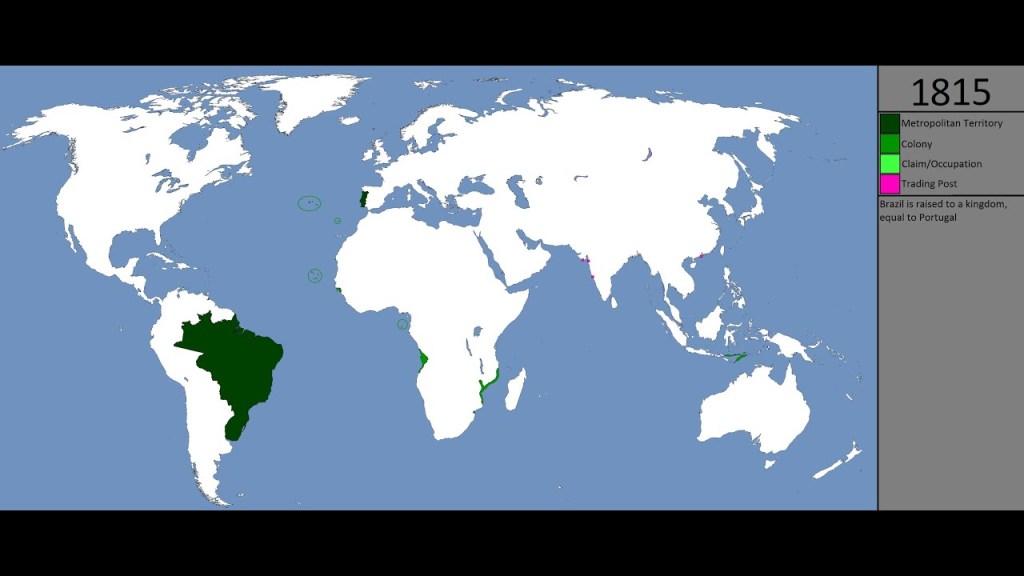
Maria I, Queen of Portugal, Brazil and the Algarves 
John VI of Portugal (aka João ), Son of Maria I 
Pedro I, Emperor of Brazil (grandson of Maria I) 
Napoléon Bonaparte, Leader of the French Republic
For our loyal readers who also listen to our podcast (and if you don’t, what are you doing??), I have in fact learned what century the French Revolution began – it’s the late 18th century! And it turns out that the French Revolution had serious repercussions for Queen Maria I of Portugal and her country. Like many of the historical events we cover here at ULTC, the origins and fallout of France’s revolution were complex. With the fall of the monarchy, there rose a new and powerful leader, Napoleon Bonaparte, and his biggest threat was England. This was bad news for Portugal, who had a significant relationship with the Brits. In 1807, Napoleon sent demands to Portugal – revoke England’s access to your ports or we are coming for you. Because Maria was incapable of ruling by this time, the impossible decision was thrown into the lap of her son João . His choices were to a) fold to the French and alienate the greatest naval power in the world or b) side with the British and face the wrath of Napoleon and his army. It was an impossible decision for any ruler, much less one who was technically only filling in for his mother.

The Great Escape
Ultimately, at the behest of his council, João chose to take England’s side, and Portugal braced itself for the consequences. Napoleon stayed true to his word and in 1808, mobilized his forces against his new enemy. The Portuguese royal family members were like sitting ducks in Lisbon and they were again faced with two options: run or surrender. And surrendering is for LOSERS. So naturally, João chose to run. Only the real heroes run away and let defenseless people fend for themselves. But where could they go? The answer lay across the ocean in Portugal’s South American colony – Brazil. Ever wonder why Brazil speaks Portuguese and not Spanish like its neighbors? (Ok well I always wondered…) Much like the relationship between England and its American colonies, Portugal had claimed Brazil in 1500 and reaped the benefits of exporting Brazil’s raw materials to other parts of the world. The pros: it was loyal to Portugal and far enough away to deter the French from following them. The cons: no one in the Portuguese royal family had actually visited Brazil in the three centuries since it was discovered. It was a huge leap of faith to pack up and move Portugal’s entire royal court (yes, all of the nobility were going along for the ride as well!) to a place they had never actually seen. But the alternative was worse.
And so, in November of 1807, Maria, João and his family, and between 10,000 and 15,000 members of the Portuguese court loaded themselves and all of their belongings onto ships to be escorted across the Atlantic by the British. It’s not clear whether or not Maria fully understood the situation at hand, as she initially refused to board the ship and had to be carried on. And not a moment too soon! In a scene straight out of the movies, Napoleon’s army entered Lisbon as the ships left the docks, ferrying Maria and her family to safety and leaving the rest of Portugal’s citizens to fend for themselves.

Help Me, I’m Poor
For those headed to Brazil, it would not be smooth sailing (see what I did there….) There was no guarantee that they would make it to their destination alive as they battled storms, disease, hunger, dehydration, and Captain Jack Sparrow. Ok fine, not Captain Jack Sparrow BUT there was a real threat of being attacked by other, lesser hot pirates. The danger for Queen Maria was even greater as she began her journey already in poor health and in her 70’s. So it’s not surprising that when the ships arrived at their destination, Maria was a little worse for wear. Much like she was carried onto the ship, she was also carried off. Reports at the time described her as having “an uncertain look of idiocy and senility” (Gomes) as she emerged – an uncouth way of saying that her advanced age and lack of awareness of the situation, as a result of her mental condition, was evident to those witnessing her arrival. Maria was immediately moved into a convent, which would be her home for the remainder of her life.

Maria may have held the title of Queen of Portugal when her court arrived in Rio de Janeiro in March of 1808, but it was her son João who held the power (he had officially been named regent in 1799). It was a job which no one envied, as Rio was not prepared to feed, clothe or house thousands of aristocrats and the members of their households. Not to mention the fact that many of these people had fled their homes without money, leaving them to depend on the generosity of the locals (as if the locals really had a choice). Rio de Janeiro may have flown a Portuguese flag, but the arrivals from Lisbon had essentially landed in a foreign country. Everything from the currency to the culture was alien and so João set his sights on modernizing their new home to reflect its new status as the seat of the Portuguese throne. Wealthy locals who willingly gave money and land to the cause were granted titles within the new court and gained the favor of the Prince regent. João quickly went to work to set up everything their new home would need to function – “banks, commerce, courts, currency, factories, hospitals, libraries, roads, schools, a press, and efficient communication” (Gomes).
Started From the Bottom Now We’re Here
Over the next decade, Rio de Janeiro would come to resemble much more of what we would consider a city these days. It was not glamorous by any means, and compared to the great kingdoms of Europe, was still considered poor and rough around the edges. But, compared to what Maria and her family had arrived to in 1808, it was like night and day. Today, Rio is Brazil’s second most populous city and the arrival of the Portuguese at the beginning of the 19th century no doubt accelerated the city’s journey into the modern world.

In December of 1816, Brazil was promoted from a colony to its own official kingdom, meaning that Maria was now technically Queen of Portugal, Brazil and the Algarves (a region in today’s Portugal, also where Madeleine McCann went missing in 2007). Maria was the first monarch of Brazil, adding to her list of firsts, but she would not hold the title for long. Three months later, in March of 1817, Maria I of Portugal passed away at the age of 81. Her son João officially inherited her crown after 25 years of acting ceremoniously on her behalf. But although Maria died in Brazil, that would not be her final resting place.
Homeward Bound
When the royal family fled from Portugal, those left behind had to face the wrath of Napoleon. A French-run government was established and the remaining Portuguese army was absorbed into the French army. During the span of France’s occupation, “one sixth of the [Portuguese] population perished of hunger, battle or simply fled the country” (Gomes). It was a dismal situation, and I am sure that the Portuguese people would have been disheartened to see the lengths to which Prince Joao went to modernize and improve his new home in Brazil. But good news came in June of 1815 when the great Napoleon and his French army were defeated by the British in the Battle of Waterloo. Despite this victory for England and its allies, it would be another six years before João would reluctantly return to his homeland to take his place as king (he apparently liked living in Brazil and had no desire to return to Portugal). In April of 1821, Joao, the body of his mother Maria, and 4,000 Portuguese-turned-Brazilians began the long journey back across the Atlantic. Those who remained in Brazil included João’s son Pedro. João could see the writing on the wall that Brazil was close to declaring its independence from Portugal, and that exact thing happened in 1822 when Brazil broke off from the mother country and Pedro became Pedro I, Emperor of Brazil.

Information on Maria was hard to come by during my research into this Portuguese queen. Despite her mental decline and her inability to rule for the last three decades of her life, Maria’s legacy remains a positive one. Remembered for her religious devotion and her history making status as Portugal’s first female monarch and Brazil’s first ever monarch, it is sad to wonder what else she could have accomplished had biology taken a different course.
References
“Earthquake Takes Heavy Toll on Lisbon.” History.com, A&E Television Networks, 13 Nov. 2009, http://www.history.com/this-day-in-history/earthquake-takes-heavy-toll-on-lisbon.
Gomes, Laurentino, and Andrew Nevins. 1808: The Flight of the EMPEROR: How a Weak Prince, a MAD Queen, and the British Navy Tricked Napoleon and Changed the New World. Lyons Press, an Imprint of Globe Pequot Press, 2013.
“Independence of Brazil.” Encyclopædia Britannica, Encyclopædia Britannica, Inc., http://www.britannica.com/place/Brazil/Independence.
Jenifer Roberts | Published in History Today Volume 57 Issue 12 December 2007. “Portugal’s Mad Queen.” History Today, http://www.historytoday.com/archive/portugal%E2%80%99s-mad-queen.
The Lisbon Earthquake of 1755, lisbonlisboaportugal.com/Lisbon-information/1755-lisbon-earthquake.html.
Peters, Timothy J, and Clive Willis. “Mental Health Issues of Maria I of Portugal and HER Sisters: The Contributions of the Willis Family to the Development of Psychiatry.” History of Psychiatry, vol. 24, no. 3, 2013, pp. 292–307., doi:10.1177/0957154×13482832.
Roberts, Jenifer. Entertaining the Braganzas. Pen & Sword History, 2019.

